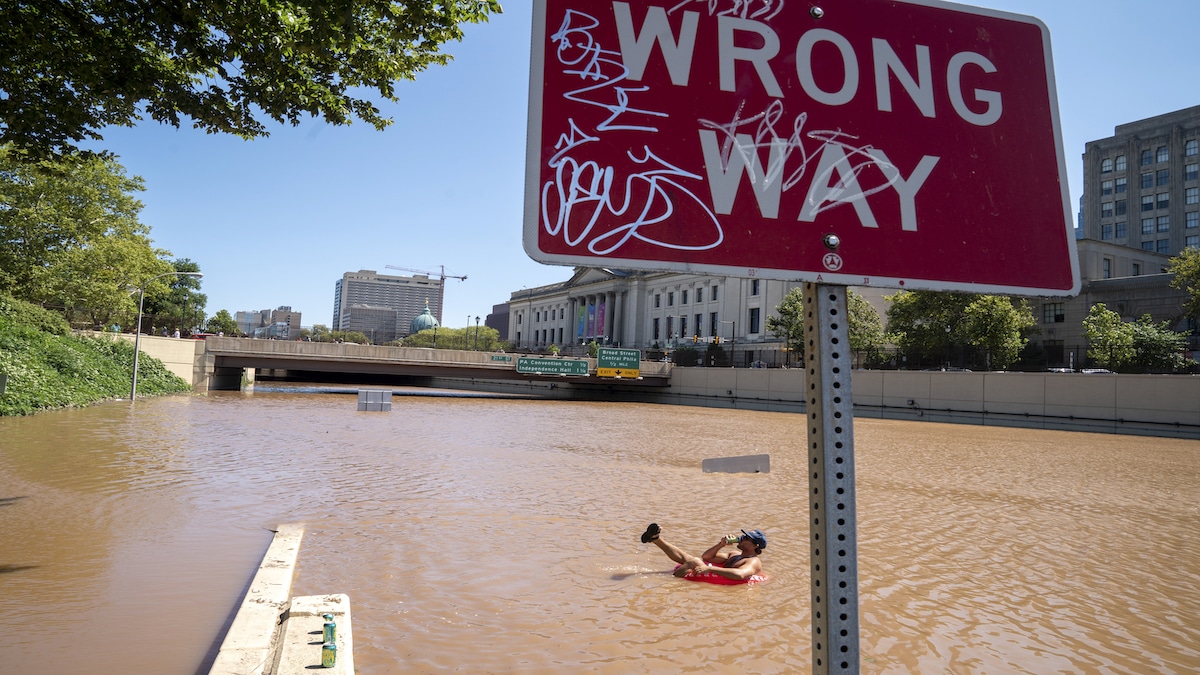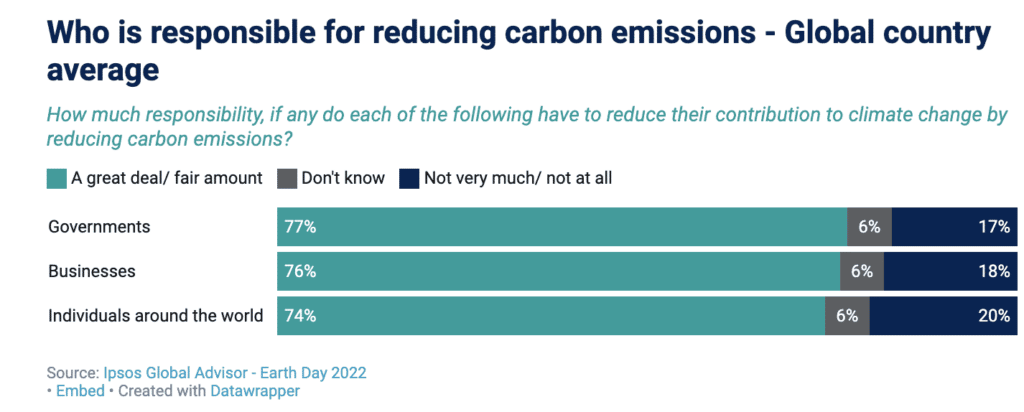
U.S. Has Highest Percentage of People Not Worried About Climate Change in Survey of 31 Countries

A new survey of people in 31 countries has found that the U.S. has the highest percentage of people who say they aren’t worried “at all” about climate change.
The survey, by market research company Ipsos, asked participants how much they were worried about climate change for the few weeks prior to the study. Possible answers included a great deal, a fair amount, a little, or not at all.
In the U.S., 29% of respondents answered “not at all,” the highest percentage for this answer compared to all other countries. Another 28% said “a little,” and 38% said “a great deal” or “fair amount.”
The researchers surveyed 23,577 people ages 16 to 99 from February 18 to March 4, 2022. They found the most concern from survey participants in Colombia, where 71% of participants noted they had “a fair amount” or “a great deal” of concern about climate change over the past few weeks.
Out of all participants, 68% said businesses and governments need to act immediately on the issue, while only 39% believed their government had a clear plan to act on climate change. As for who the public believes shares responsibility for climate change, 77% said the government, 76% said businesses, and 74% said individuals.

“With 77% of people globally holding Government to account for the issue and 76% saying the same about businesses, it is clear that people expect to see real change, both in public policy and the private sectors,” said Pippa Bailey, head of UK climate change & sustainability practice at Ipsos.
The report noted that while many people around the world are worried about climate change, it falls eighth in the list of concerns.
“Despite 7 in 10 people being concerned about the impact of climate change on our planet, for the majority of people globally there are other issues they feel are more pressing, such as their family’s health, war, financial concerns and the ongoing pandemic,” Bailey said. “People know that they have to change their behaviors in order to address climate change, but if the issue isn’t at the top of their priorities, they are unlikely to do so, unless there is an incentive that aligns with other priorities i.e. saving money, and/or being better for the lives and wellbeing of their families. So, there are real opportunities for businesses and governments to provide additional incentives and messaging that will encourage change amongst consumers, but they must also recognize the need for change themselves.”

 233k
233k  41k
41k  Subscribe
Subscribe 